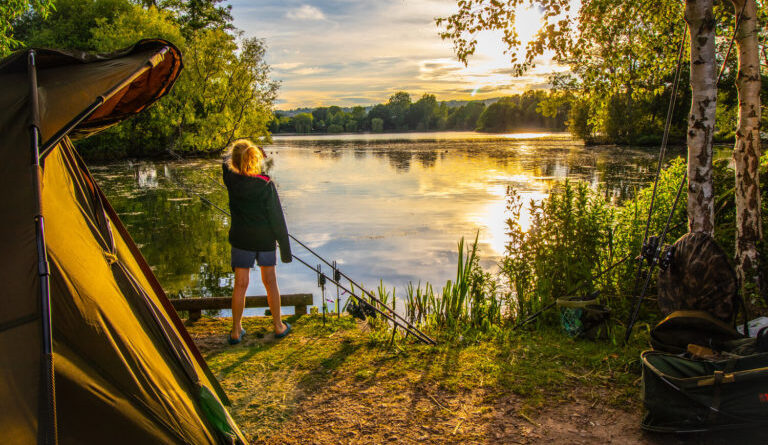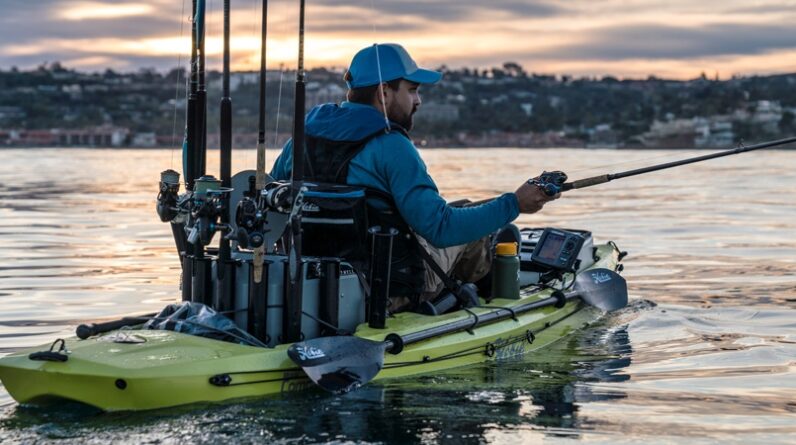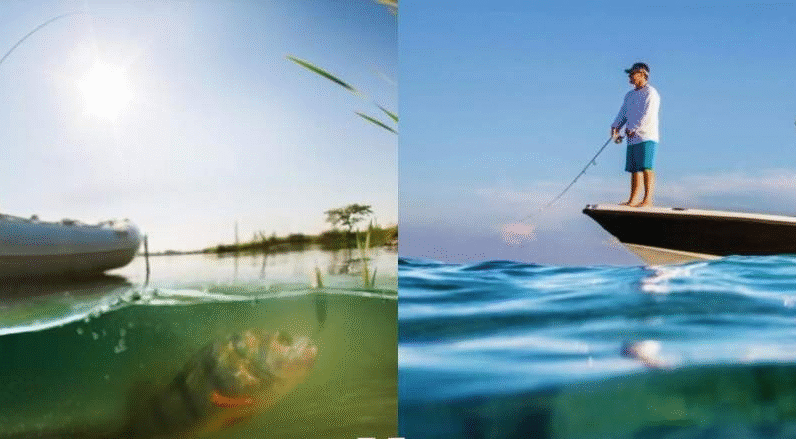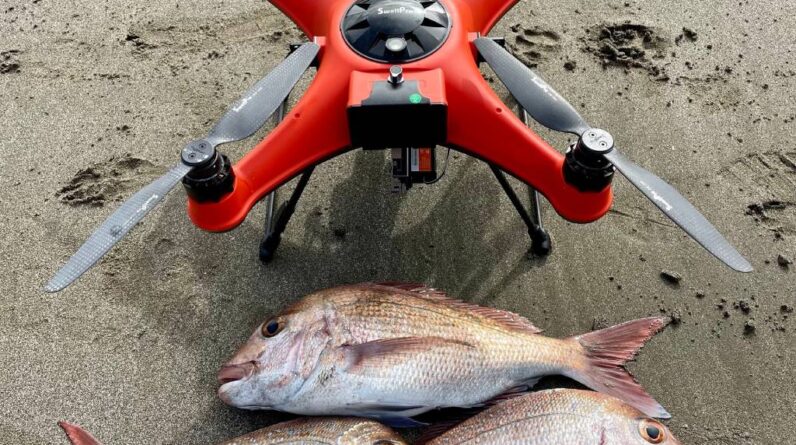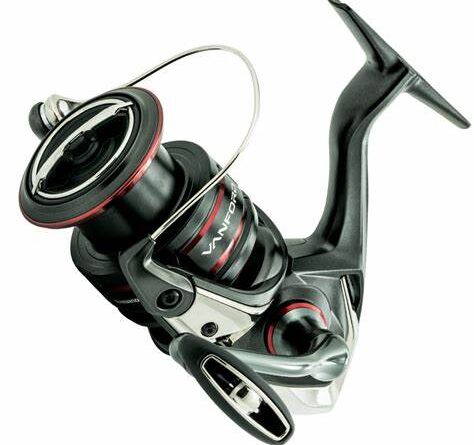How Fishing Can Help Kids Prepare for Their Future: Fishing, often seen as a peaceful and enjoyable outdoor pursuit, is far more than just a leisurely activity. It serves as a powerful tool for teaching children essential life skills that can equip them for the challenges of the future. Through the process of fishing, kids can learn patience, discipline, problem-solving, and develop a deeper understanding of environmental stewardship.
These lessons go beyond the basics, helping young minds cultivate resilience, responsibility, and critical thinking. In this article, carefully crafted by our team at Cheerfulfisherman.com, we will delve into the many ways fishing nurtures personal growth in children, shaping character traits and skills that will serve them well throughout their lives. Whether it’s through the thrill of the catch or the quiet moments of reflection, fishing offers a unique opportunity for kids to gain valuable experiences that extend far beyond the water’s edge.
1. Developing Patience and Perseverance
Fishing inherently teaches patience. Unlike fast-paced video games or instant gratification activities, fishing requires waiting, often for extended periods. Children may not always catch a fish right away, but this waiting period allows them to learn the value of persistence. In the real world, success is rarely instant, and perseverance is essential for achieving goals.
1.1 The Virtue of Delayed Gratification
In today’s world, kids are used to getting things instantly—whether it’s through technology, social media, or fast food. Fishing helps them experience delayed gratification. By casting their line and waiting for a bite, kids realize that hard work and patience pay off, a lesson that can translate into academic and professional settings.
1.2 Overcoming Frustration
When kids go fishing, they will experience moments of frustration—whether it’s a tangled line or a fish slipping off the hook. This helps them build resilience, teaching them that setbacks are part of life. The ability to stay calm, regroup, and try again are critical skills for future challenges, be it in school, relationships, or their eventual careers.
2. Fostering Responsibility
Fishing is not just about catching fish; it requires preparation, care, and responsibility. From taking care of the fishing gear to respecting the environment, kids learn that their actions have consequences.
2.1 Maintaining Fishing Gear
Kids who engage in fishing are responsible for their equipment. Whether it’s cleaning their fishing rods, maintaining the reels, or checking for the right bait, fishing teaches them to be responsible for their tools. This habit of taking care of their belongings is an essential skill that will serve them well in the future, from managing their schoolwork to handling personal belongings.
2.2 Respecting the Environment
Fishing also imparts a sense of environmental stewardship. Kids learn about the importance of clean water, healthy fish populations, and respecting wildlife. Understanding the balance of ecosystems can spark a lifelong appreciation for nature and a sense of responsibility for protecting the environment. In a future world grappling with climate change and environmental concerns, such awareness can lead to more sustainable decision-making.

3. Improving Focus and Concentration
Fishing requires sustained attention, whether it’s tracking the line, monitoring the water, or reacting quickly to a nibble. This need for concentration can help improve focus, especially in kids who struggle with maintaining attention in more traditional settings like the classroom.
3.1 Mindfulness and Being Present
Fishing can be a meditative experience that teaches kids mindfulness. In our highly digital world, where distractions are constant, learning how to focus on one task without interruptions can enhance their ability to stay present. This skill is crucial for academic success, and later, professional productivity.
3.2 Fine-Tuning Observation Skills
When kids go fishing, they observe nature—the flow of the water, the movement of the fish, and even the changes in the weather. This fine-tuning of their observation skills can benefit them in subjects like science or art, where keen attention to detail is paramount.
4. Encouraging Problem-Solving and Critical Thinking
Fishing may seem simple on the surface, but it’s a complex activity that involves strategy and problem-solving. Whether it’s selecting the right bait, finding the ideal fishing spot, or adjusting techniques, kids learn how to think critically and make decisions based on the situation.
4.1 Choosing the Right Tools
Fishing is not a one-size-fits-all activity. Different environments, types of fish, and conditions require different equipment and techniques. By figuring out what works best, kids develop problem-solving skills that they can apply to other areas of life, such as choosing the right tools for school projects or solving challenges in real-world situations.
4.2 Adapting to Changing Conditions
Fishing conditions change rapidly—water levels fluctuate, fish move, and weather patterns shift. Kids who learn how to adapt to these conditions gain valuable flexibility. This adaptability is a crucial skill in today’s rapidly changing world, where the ability to adjust to new situations can make a significant difference in both personal and professional success.

5. Building Social Skills and Teamwork
Fishing can be a social activity, especially when done in groups or with family members. The cooperative aspect of fishing helps kids build communication skills, learn teamwork, and develop leadership abilities.
5.1 Fishing with Friends or Family
Fishing trips with friends or family can strengthen bonds and encourage teamwork. Kids can learn how to share responsibilities, such as taking turns casting or helping others bait their hooks. These collaborative experiences help develop social skills that are essential in school, the workplace, and life in general.
5.2 Learning from Mentors
Kids who fish often have mentors—whether it’s a parent, grandparent, or local fishing expert. Learning from an experienced fisherman teaches kids to respect authority, listen carefully, and follow instructions. These mentorship dynamics help prepare them for future educational and career settings, where guidance from others is crucial.
6. Boosting Confidence and Self-Esteem
Fishing offers kids a chance to succeed in an outdoor environment. Every time they catch a fish, fix a problem, or master a new technique, their self-esteem and confidence grow.
6.1 Celebrating Achievements
When kids catch their first fish, it’s a moment of triumph. This sense of accomplishment can boost their self-esteem, teaching them that they are capable of achieving their goals. Whether it’s learning to cast the perfect line or reeling in a big catch, these achievements build confidence that can extend to other areas of life, such as academics, sports, or personal projects.
6.2 Developing Independence
Fishing teaches kids to rely on themselves. While they may start with help from adults, as they gain experience, they learn to make decisions independently. This sense of autonomy builds confidence and prepares them for the responsibilities of adulthood.
7. Cultivating a Strong Work Ethic
Fishing is a demanding activity that requires planning, preparation, and effort. It’s not as simple as showing up and casting a line. Kids who fish learn the value of hard work and the rewards that come with it.
7.1 Preparing for a Fishing Trip
From packing the right equipment to waking up early in the morning, fishing requires forethought and discipline. Kids learn that success often comes from thorough preparation and consistent effort. These habits translate into success in school and, later, in their careers.
7.2 Embracing the Physical and Mental Demands
Fishing can be physically and mentally exhausting, especially for kids who are just starting out. The endurance needed to stay patient and focused over long periods helps develop a strong work ethic. This resilience and determination are essential qualities that will serve kids well in future endeavors.
8. Promoting Physical Health and Well-being
Fishing is not just a mental or emotional activity—it’s also physical. Whether it’s casting a line, reeling in a fish, or trekking to a remote fishing spot, the activity promotes physical health.
8.1 Outdoor Activity and Exercise
Fishing encourages kids to get outside and be active, which is crucial for their physical well-being. Whether they are walking along the shoreline or wading through rivers, they are engaging in low-impact exercise that promotes cardiovascular health and builds muscle tone.
8.2 Reducing Screen Time
In an age where kids spend a significant amount of time in front of screens, fishing offers a healthy alternative. By spending time outdoors, kids disconnect from electronic devices and engage in a more balanced lifestyle, reducing the risks associated with excessive screen time, such as obesity and poor posture.

9. Teaching the Importance of Conservation and Sustainability
Fishing inherently teaches children about conservation. They learn about the impact humans have on fish populations, water quality, and the overall environment. This awareness helps kids develop an understanding of sustainability, which is becoming increasingly important in today’s world.
9.1 Catch-and-Release Practices
Through fishing, kids can learn about sustainable practices such as catch-and-release, which helps preserve fish populations for future generations. Understanding these principles teaches them the importance of protecting natural resources and encourages them to think about how their actions affect the environment.
9.2 Environmental Stewardship
Kids who fish are more likely to develop a love and appreciation for nature. This experience can lead to a lifelong passion for conservation, encouraging them to become stewards of the environment. In a world where climate change and environmental degradation are pressing issues, fostering this sense of responsibility in future generations is essential.
10. Building Emotional Intelligence and Mental Well-being
Fishing offers a unique opportunity for kids to develop emotional intelligence and improve their mental well-being. The activity provides time for reflection, fosters emotional regulation, and encourages gratitude for the natural world.
10.1 Learning Emotional Regulation
The calm, sometimes slow pace of fishing allows kids to practice emotional regulation. Whether they’re coping with the frustration of a missed catch or the excitement of reeling in a big fish, they learn how to manage their emotions. This emotional regulation is essential for navigating relationships and challenges throughout life.
10.2 Reducing Stress and Anxiety
Spending time in nature has been shown to reduce stress and anxiety in both children and adults. The peaceful environment of fishing, combined with the rhythmic movements of casting and reeling, provides a sense of calm and relaxation. This helps kids unwind, manage stress, and even improve their mental well-being. Learning how to cope with anxiety and stress from a young age equips them with tools they can use throughout life, whether in school, sports, or work settings.
10.3 Building Resilience Through Emotional Challenges
Fishing, like life, is full of ups and downs. Not every fishing trip results in a big catch, and this can be disappointing for young anglers. However, the ability to manage disappointment and bounce back from setbacks is a crucial part of building resilience. This emotional strength helps kids face challenges with a positive attitude and prepares them for the emotional highs and lows they will encounter in their personal and professional lives.
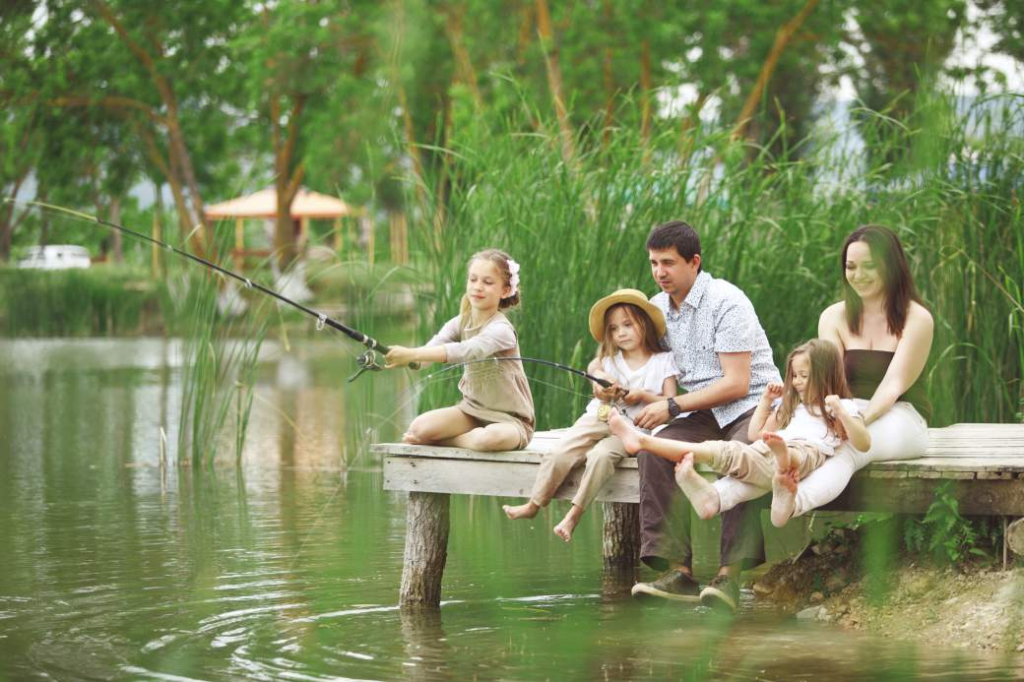
11. Cultivating a Sense of Adventure and Curiosity
Fishing can spark a sense of adventure and curiosity in kids, inspiring them to explore new places, try new techniques, and discover more about the world around them. Whether it’s casting a line in a remote mountain stream or learning about different fish species, fishing offers endless opportunities for discovery.
11.1 Exploring New Locations
Fishing takes kids to new and exciting locations—rivers, lakes, oceans, and ponds—that they may not have visited otherwise. This exploration encourages a sense of adventure and a love for the outdoors. Children who enjoy fishing are more likely to develop a passion for travel, outdoor activities, and even biology or environmental science.
11.2 Learning About Nature and Ecosystems
Through fishing, kids can learn about different ecosystems, fish species, and how environmental factors like water temperature, weather, and seasons affect wildlife. This knowledge can fuel their curiosity and interest in science, potentially sparking future careers in biology, environmental conservation, or outdoor education.
12. Instilling Leadership and Decision-Making Skills
Fishing can also help kids develop leadership skills, as it requires them to make decisions, plan their approach, and take initiative. These experiences teach kids how to lead, both in personal projects and when working with others.
12.1 Taking Initiative on Fishing Trips
Once kids gain experience, they often take charge of their fishing trips, deciding where to fish, what bait to use, and how to tackle challenges they encounter along the way. These decision-making processes foster leadership qualities, helping them develop the confidence to take initiative in other areas of life, such as school projects or extracurricular activities.
12.2 Teaching Others
As kids become more proficient in fishing, they may have the opportunity to teach younger siblings or friends how to fish. Teaching others is a valuable leadership experience that helps kids develop communication skills, empathy, and patience. These qualities are essential for future leadership roles in school, sports, or their eventual careers.
13. Providing a Lifelong Skill and Hobby
Fishing is not just a childhood activity—it’s a skill and hobby that can last a lifetime. Kids who learn to fish at a young age are more likely to continue enjoying the activity into adulthood, providing them with a lifelong source of relaxation, enjoyment, and personal fulfillment.
13.1 Creating Family Traditions
Fishing is often a family tradition passed down from generation to generation. By teaching kids to fish, parents and grandparents are not only giving them a skill but also fostering family bonding and the creation of lasting memories. These traditions can continue for years, helping to strengthen family ties and provide kids with a sense of belonging.
13.2 Lifelong Personal Fulfillment
As kids grow older, fishing can become a personal hobby that provides a sense of fulfillment and balance in their lives. Whether they fish to relax, spend time with loved ones, or enjoy the thrill of catching fish, the hobby provides a lifelong outlet for stress relief, outdoor adventure, and connection to nature.
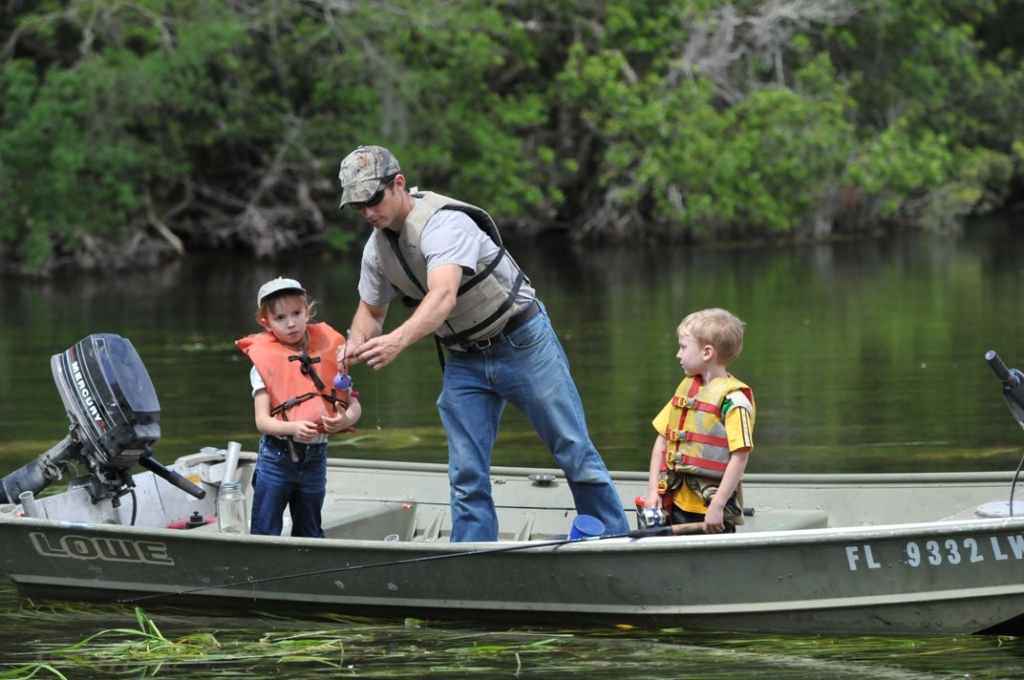
14. Preparing for Career Opportunities in Outdoor and Environmental Fields
For some kids, fishing may even inspire future career opportunities. Many fields, such as environmental science, wildlife conservation, marine biology, and outdoor recreation, are connected to fishing and the natural world.
14.1 Sparking Interest in Environmental and Marine Sciences
Kids who develop a love for fishing often become more interested in studying marine life, water ecosystems, and environmental conservation. This passion can lead them to pursue careers in marine biology, environmental science, or conservation. By teaching kids about the natural world through fishing, parents can help foster a lifelong interest in preserving and studying the environment.
14.2 Outdoor Recreation and Guiding Professions
Fishing also offers career opportunities in outdoor recreation, including becoming a fishing guide, park ranger, or outdoor educator. Kids who develop strong fishing skills and a passion for nature can eventually turn this hobby into a career, sharing their love of the outdoors with others.
15. Building a Connection to Tradition and Culture
In many cultures, fishing is more than just an activity; it’s a tradition that carries deep cultural significance. By teaching kids how to fish, parents and communities can pass on cultural values and practices, helping children feel connected to their heritage.
15.1 Honoring Cultural Traditions
In communities where fishing is a traditional way of life, teaching kids to fish helps them connect with their heritage. This connection to tradition can foster a sense of pride and identity, helping children understand their cultural background and the importance of preserving these practices.
15.2 Passing Down Stories and Techniques
Fishing often comes with stories, techniques, and knowledge passed down through generations. By learning these practices, kids can become keepers of family and cultural history, preserving the wisdom and experiences of their ancestors.
16. Developing Financial Responsibility and Budgeting Skills
Fishing, like any hobby, comes with costs, such as purchasing gear, licenses, and bait. By involving kids in these financial aspects, parents can teach them valuable lessons about budgeting, saving, and financial responsibility.
16.1 Budgeting for Fishing Gear
Kids can learn how to save money and budget for fishing equipment, from rods and reels to tackle and bait. These financial lessons are essential for developing responsible money habits, which will be beneficial as they grow older and begin managing their own finances.
16.2 Understanding the Value of Investment
Fishing teaches kids the value of investing in quality equipment and how long-term investments can pay off. They learn that spending more on a durable rod or high-quality reel may save money in the long run, a lesson that can translate into other areas of life, such as investing in education or saving for future goals.

17. Teaching Time Management
Fishing is often a time-sensitive activity, particularly when considering tides, seasons, and daylight hours. Learning how to manage time effectively is an important skill that fishing can teach kids.
17.1 Planning the Perfect Fishing Trip
To have a successful fishing trip, kids need to plan ahead, making sure they have enough time to gather equipment, get to the fishing spot, and make the most of the best fishing hours. These planning skills are invaluable for teaching kids how to manage their time effectively in school, sports, and eventually, work.
17.2 Balancing Fishing with Other Responsibilities
As kids get more involved in fishing, they must learn to balance this hobby with other responsibilities, such as schoolwork and chores. This balance teaches them how to prioritize tasks and manage their time wisely, preparing them for the demands of adulthood.
Conclusion
Fishing is more than just a fun outdoor activity for kids—it’s a powerful tool for personal growth and skill development that can prepare them for a successful future. From teaching patience, responsibility, and problem-solving skills to fostering leadership, environmental stewardship, and resilience, fishing offers countless lessons that kids can carry with them throughout their lives. Whether they choose to pursue fishing as a lifelong hobby or use the skills they’ve learned to succeed in other areas, fishing helps equip kids with the tools they need to thrive in their future endeavors.

